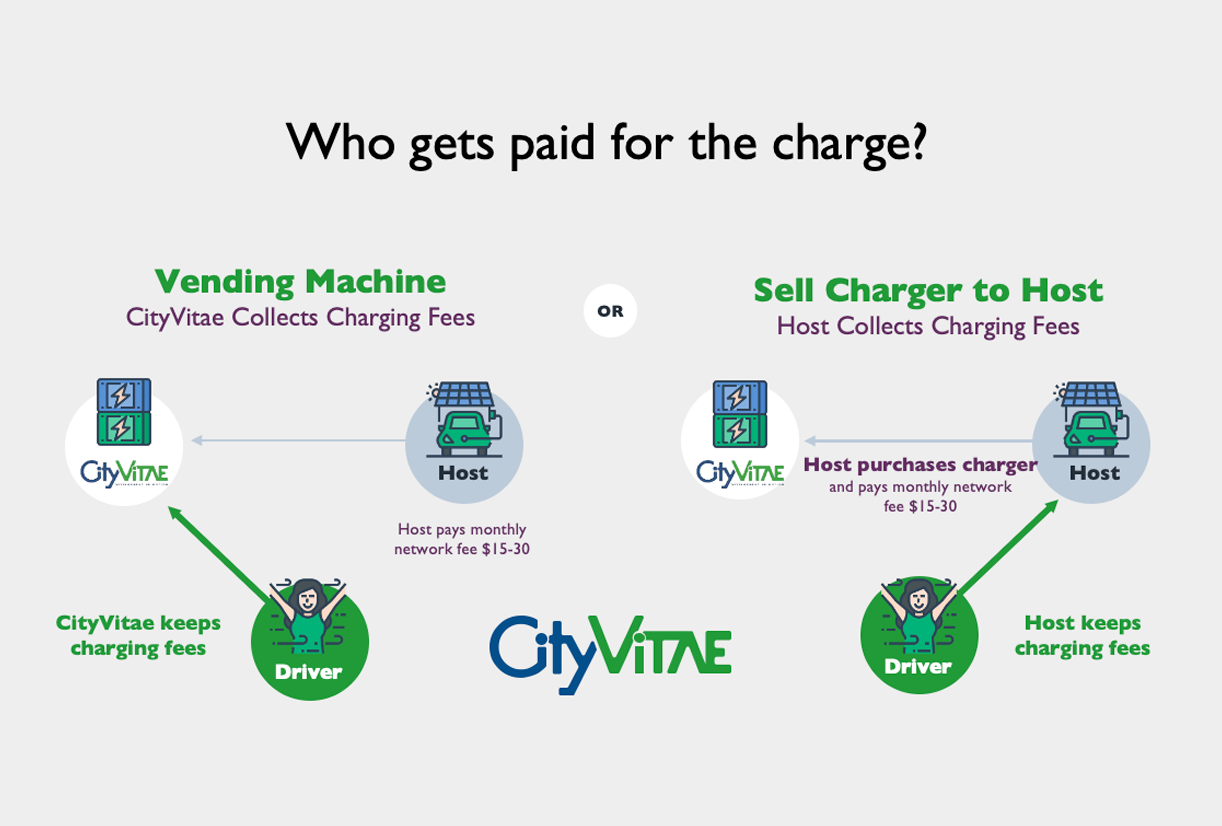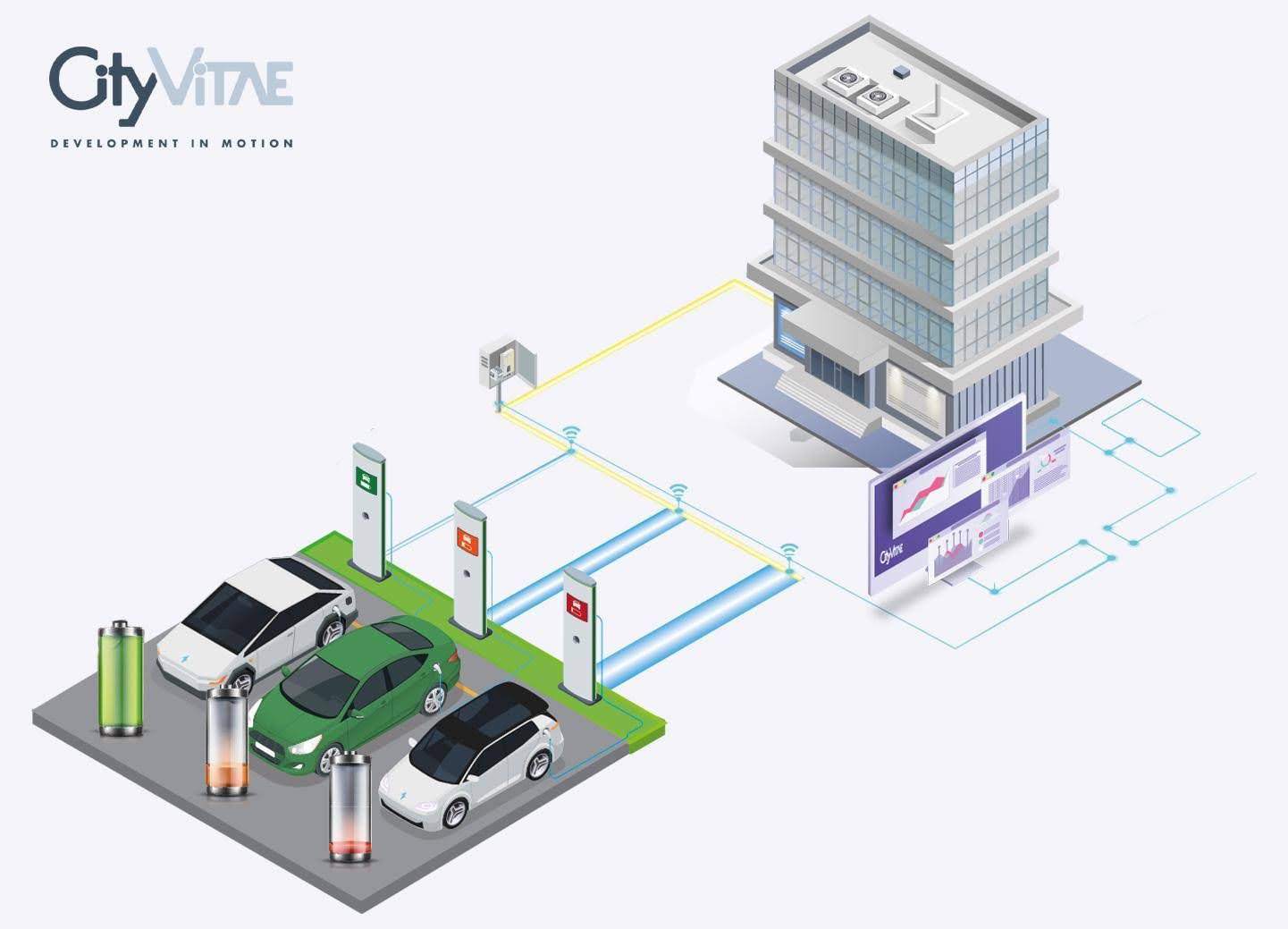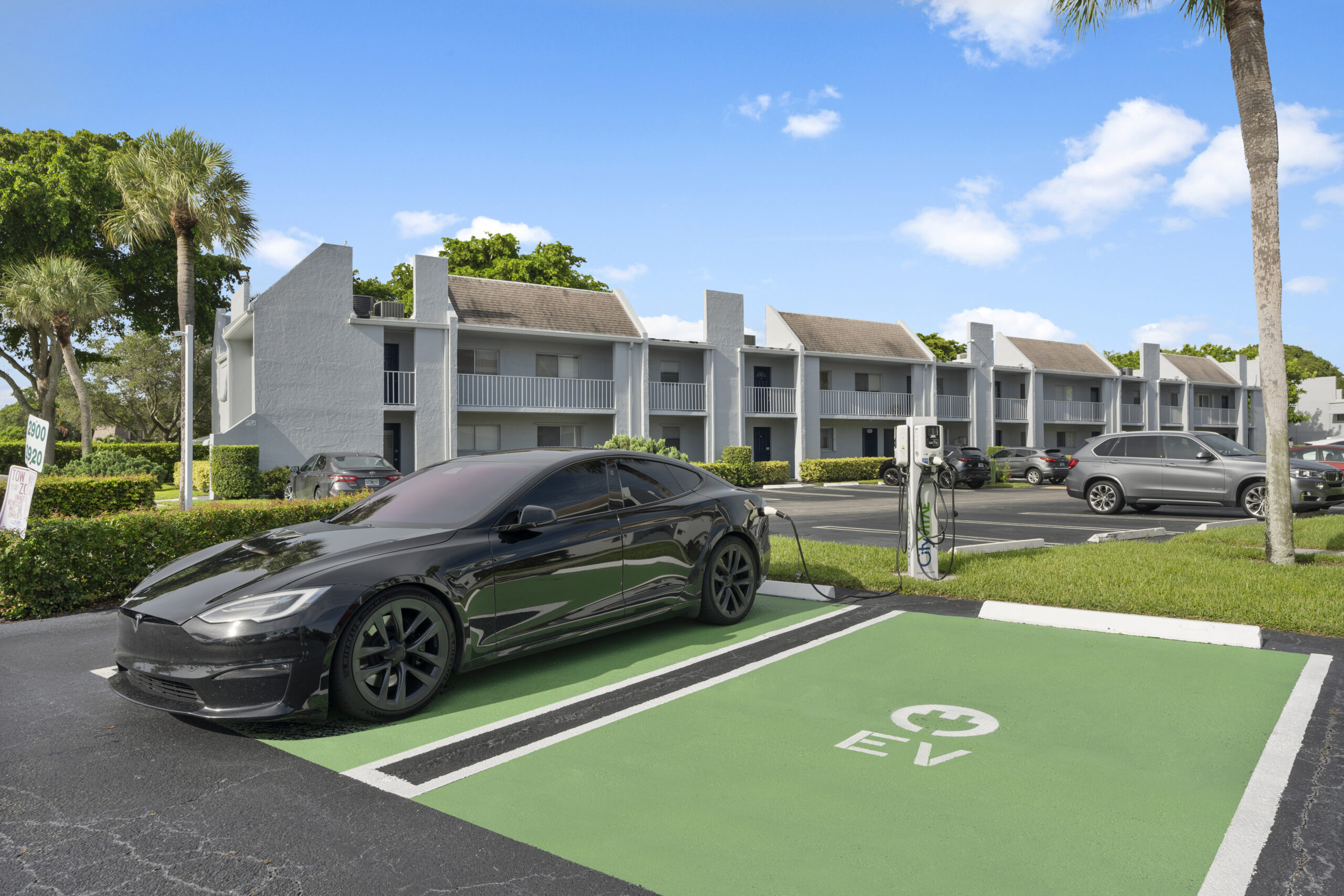When it comes to EV charger ownership, there are various strategies for optimizing your return on investment in both multi-family and commercial charging settings.
In this article, we will explore two main business models for hosts: the Ownership Model and the Vending Machine Model. Each model offers unique advantages, caters to different types of entrepreneurs, and allows for varying degrees of ownership over the charging stations.
The Ownership Model
The Ownership Model represents a comprehensive approach to EV charging station operation where you are solely responsible for purchasing and managing the charging station over the platform of your EV charging operator. This model empowers you as the decision-maker for all commercial aspects associated with the charger.
With this model, you can set the charge rate, impose an idle fee (a charge applied when vehicles are plugged in but not charging), and control access, such as deciding whether guests can use your chargers.
The IT platform of your EV charging operator is vital to ease of management and how much control you have over the charger’s commercial aspects. A seamless operation is most effectively achieved when your charging station provider is also the company that has developed the software, thereby eliminating the need to go through resellers or intermediaries for any commercial term changes. Generally, these third parties have a limited understanding of the IT aspect of your system.
The Ownership Model is best if you want to keep full control of the revenue flow and you don’t mind the upfront cost of the charging station and its installation.
The Vending Machine Model
In the Vending Machine Model, you give away commercial control to a third party, but you don’t have any operational involvement or substantial upfront costs.
In this setup, CityVitae takes care of the maintenance, user interface, day-to-day operations, and owns all charging equipment. A percentage of charging revenue is collected by CityVitae, and the host also pays a small monthly network fee.
The Vending Machine Model is particularly suitable for property owners who seek a hands-off role in EV charging, but are still looking to provide this attractive amenity to their customers and tenants.
The Importance of Installation Ownership
Regardless of the chosen model, ownership of the property’s electrical infrastructure is critical to protecting yourself as a property owner. If you do not own the wires, conduit boxes, breakers, and junction boxes, you effectively relinquish control over your property’s essential infrastructure.
Without ownership, you become unnecessarily dependent on external entities. Switching charging providers may require complicated negotiations or re-installation, leading to avoidable costs, frustration, and time spent.
Keeping ownership of your electrical infrastructure is a strategic move to safeguard your property and maintain the flexibility to adapt to changing circumstances.
The Role of Software in EV Charging Management
Whether you decide to follow the Ownership Model or the Vending Machine Model, it’s the software that governs how efficiently and effectively your charging station operates, making it essential for optimizing usage and revenue.
Some key features to look for include…
- Software developed in-house
- A charging station app for users
- Dynamic pricing – being able to set different rates at different times
- Remote monitoring of the charging system
- Revenue management system
- Dynamic charging – the system is able to expand beyond the electrical capacity of the property by using powerful IT software, e.g. being able to charge 20 cars simultaneously when there is only capacity for 5
To ensure a smooth operation, choose a charger provider that is also the company that has developed the software. This reduces the complexities and risks of dealing with resellers or intermediaries in the future.
Executive Summary
Understanding the nuances of the Ownership and Vending Machine Models will allow you to align your business decisions with your goals and resources.
The Ownership Model is a hands-on approach where you purchase, manage, and maintain the EV charging station, offering complete control over operations and profits.
The Vending Machine Model offers a more hands-off approach where a third-party operator manages the charging stations and is entitled to profits, but allows property owners to have EV charging as an amenity without day-to-day involvement and a minimal investment.
No matter which business model you choose to invest in, it’s important to ensure ownership of your property’s electrical hardware and ensure your provider utilizes advanced software to enhance management and maximize profitability.
Discover how CityVitae’s solutions can revolutionize your EV charging management and maximize your returns.





